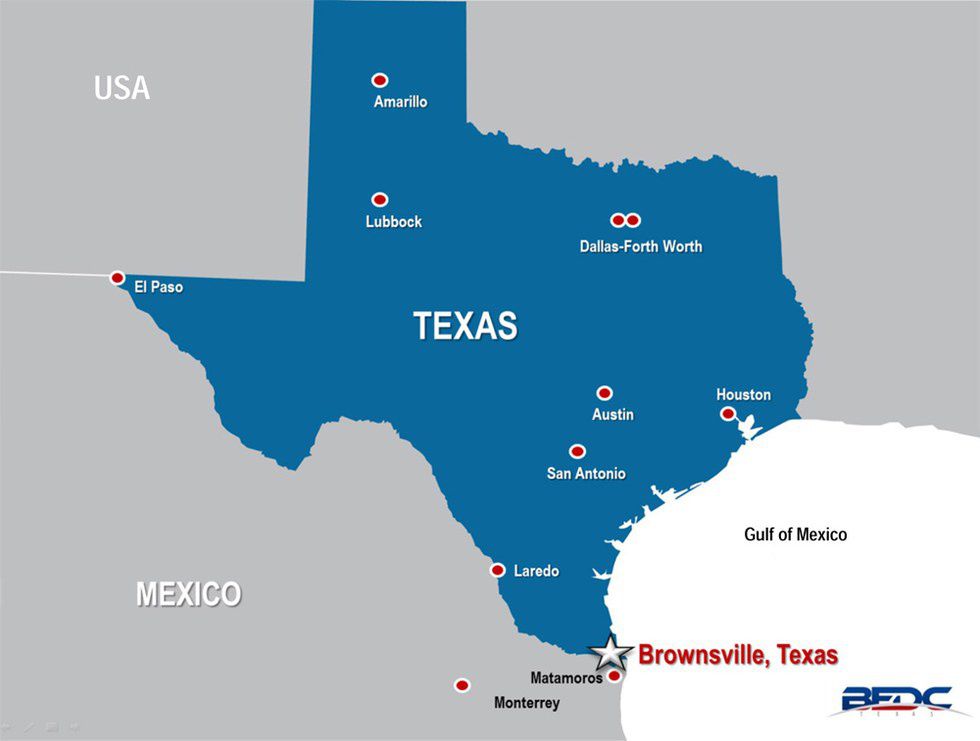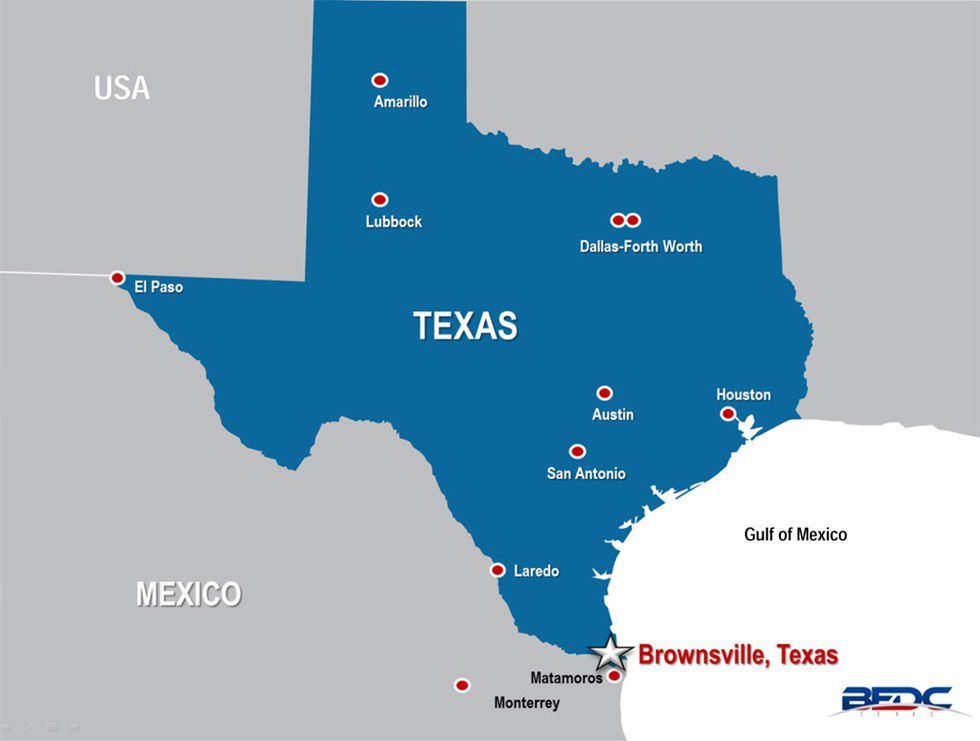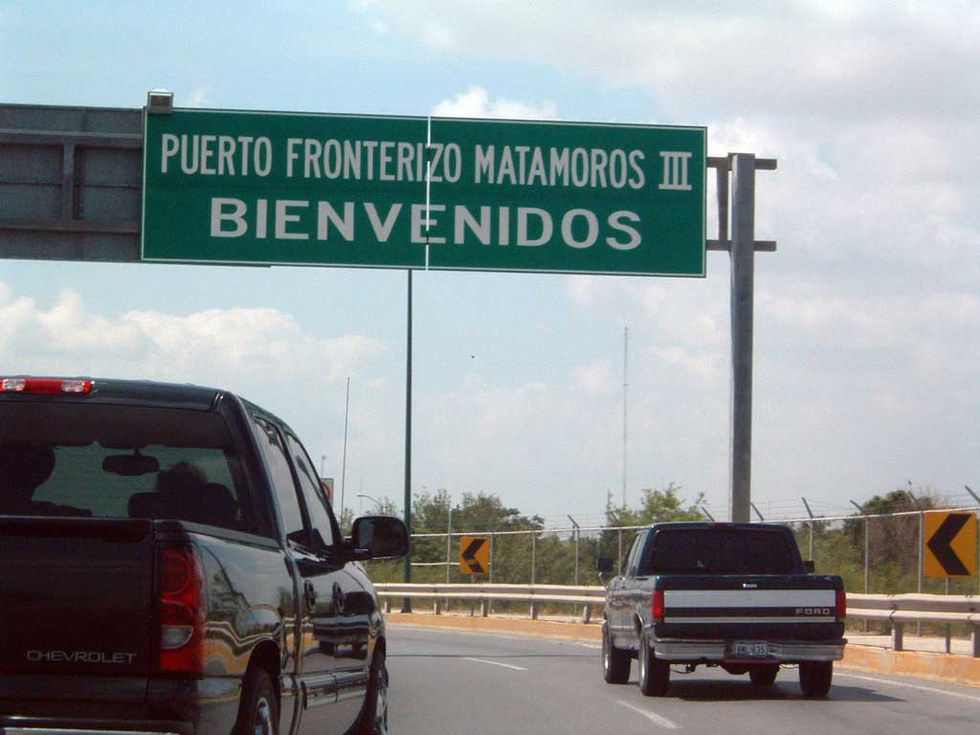On the southernmost tip of Texas sits Brownsville, a small city with less than 300,000 people. The Brownsville area is among the fastest growing places in the United States thanks to the partnership with its neighboring city of Matamoros, Tamaulipas, Mexico. The Brownsville-Matamoros border is connected by four international bridges that surround the Rio Grande Valley. For some people, being part of two countries may seem like an asset—an engaging way to live between two worlds with contrasting languages and cultures.
As a person who grew up near the border, I can assert that both Matamoros and Brownsville are made up of hard-working and perseverant citizens that seek a better way of living for their families. For example, in order to secure a more successful future, students and workers that live in Mexico cross the border every single day of the year—by foot or car—at 5 or perhaps 6 A.M to attend American schools and jobs. What many Americans do not realize today is the easiness and fluidity of these Mexican-American borders. Those who live in Brownsville or Matamoros cross the border once, maybe even twice, each day as they so desire with no questions asked and just their passport or visa in hand. In good days, the waiting line ranges from 20 to 50 minutes, while in holidays, crossing the border could take up to three hours of waiting time.
(Above is a picture of one of the four international bridges in the Brownsville-Matamoros border.)
In this culture, it is easy to feel like one does not belong to either side. As a Mexican-American, I often find myself listening to bachata and reggaeton in the States, whereas in Mexico, my music playlist ranges from Bruno Mars to Beyonce. It feels as if I am never Mexican enough and simultaneously, not American at all. Though what most Mexican-Americans can agree on is one thing: Nationalities do not define a person. We are all human beings deserving respect and thus, no border or wall can contain a culture and its people.
In all my years of living in the Valley, I have never met a criminal, a rapist or a worker who “stole a job.” Thousands of legal and illegal immigrants risk their lives every year to pursue the American Dream. Crossing the border is not easy, hence, only the brave and best workers make it to the States. Trump’s claims declared that when “Mexico sends its people, they’re not sending their best ones, rather, they send those with a lot of problems.” But wouldn’t “people with problems” be the ones staying at home unemployed and hopeless?
Mexicans, Latinos and Hispanics are people worthy of life, liberty and the pursuit of happiness too. U.S. President Harry S. Truman once said, “Free societies don’t fear but welcome society.” Yet what our "free and democratic" society is doing is the complete opposite. All Mexicans are not drug dealers or immigrants. All Muslims are NOT terrorists. Crossing the border is part of our everyday culture, and this is how the Brownsville-Matamoros community rests assured that Trump’s border wall won’t work: Brownsville can’t function economically nor socially without Matamoros, and vice versa.
So my take-home message is this: cross the border. Not literally, but cross your borders, your boundaries, make it a habit to develop your own opinions about other cultures. Allow yourself to be challenged by those around you—even if that includes your own President.
//
Versión Castellana:
En el sur de Tejas se encuentra Brownsville, una pequeña cuidad con menos de 300,000 gente. El área de Brownsville está entre los lugares de más rápido crecimiento en los Estados Unidos gracias a la asociación con su cuidad cercana de Matamoros, Tamaulipas, México. La frontera de Brownsville con Matamoros está conectada por cuatro puentes internacionales que rodean el Valle del Río Grande. Para algunas personas, ser parte de dos países puede parecer un beneficio, pues es una forma atractiva de vivir entre dos mundos con lenguas y culturas diferentes.
Como una persona que creció cerca de la frontera, puedo afirmar que tanto Matamoros como Brownsville están formados por ciudadanos esforzados y perseverantes que buscan una mejor manera de vivir para sus familiares. Por ejemplo, para asegurar un futuro más exitoso, algunos estudiantes y trabajadores que viven en México cruzan la frontera todos los días del año, a pie o en coche, a las 5 o quizás a las 6 de la mañana para asistir escuelas y empleos estadounidenses. Lo que muchos estadounidenses no entienden hoy en día es la facilidad y fluidez de estas fronteras mexicano-americanas. Aquellos que viven en Brownsville o Matamoros cruzan la frontera una vez, tal vez incluso dos veces, cada día con sólo su pasaporte o visa a la mano. En días buenos, la línea de espera es de 20 o 50 minutos, mientras que en días festivos, cruzar la frontera puede tomar hasta tres horas de espera.
En esta cultura, es fácil sentir que uno no pertenece a ninguno de los dos lados. Como mexicano-estadounidense, a menudo me encuentro escuchando bachata y reggeaton en los Estados Unidos, mientras que en México, mi lista de canciones incluye artistas como Bruno Mars o Beyoncé. Nunca podemos ser demasiado mexicanos o americanos. Pero hay algo que todo mexicano-estadounidense puede aceptar: Nacionalidades no define a una persona. Todos somos seres humanos merecedores de respeto y por lo tanto, ninguna frontera o pared puede contener a una cultura y su gente.
En todos mis años de vivir en el Valle de Tejas, nunca he conocido a un criminal, un violador o un trabajador que haya “robado un trabajo." Miles de inmigrantes legales e ilegales arriesgan sus vidas cada año para perseguir el sueño americano. Cruzar la frontera no es fácil, por eso solo los mejores trabajadores logran hacerlo. La declaración de Trump declaró que cuando "México envía a su gente, no envía la mejor, sino que envía aquellos con muchos problemas." Pero ¿no serían las "personas con problemas" las que se quedan en casa desempleadas y sin esperanza?
Tanto los estaudonidenses como los mexicanos son personas dignas de la vida, la libertad y la búsqueda de la felicidad. El ex-presidente de los Estados Unidos, Harry S. Truman, alguna vez dijo: "Las sociedades libres no temen sino acogen a la sociedad." Sin embargo, lo que hace nuestra sociedad "democratica" es totalmente lo contrario. Todos los mexicanos no son traficantes de drogas o inmigrantes. Todos los musulmanes NO son terroristas. Cruzar la frontera es parte de nuestra cultura cotidiana y así es como la comunidad de Brownsville-Matamoros asegura de que el muro fronterizo de Trump no funcionará: Brownsville no puede funcionar económicamente ni socialmente sin Matamoros, y viceversa.
Así que mi mensaje es este: cruza la frontera. No literalmente, pero cruza tus fronteras, tus límites, desarrolla tus propias opiniones sobre otras culturas y permítete ser desafiado por aquellos que te rodean, incluso si eso incluye a tu propio Presidente.
***Recommended video to watch: Crossing from Brownsville to Matamoros: https://www.youtube.com/watch?v=j7TWDXXglus
United States Census Bureau: https://www.census.gov/programs-surveys/popest.html
Texas Map & Border Wall: Google Pictures






















